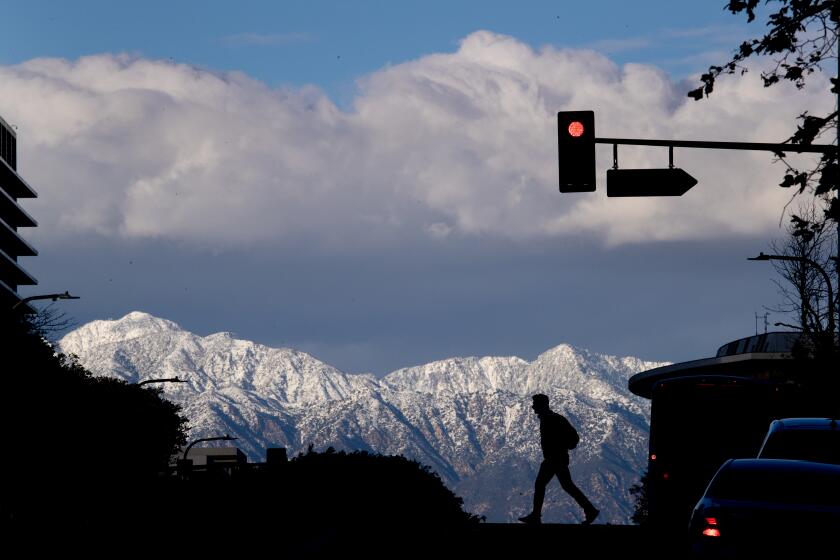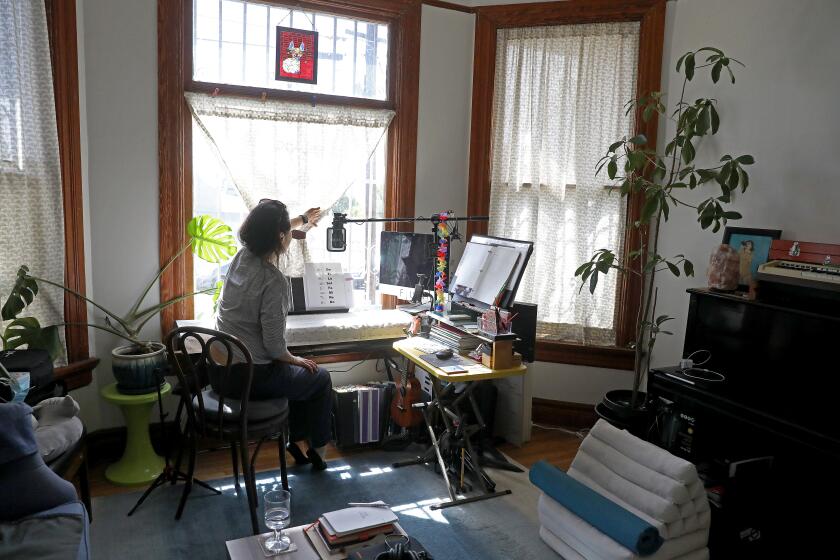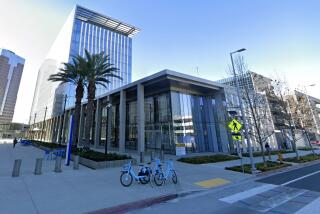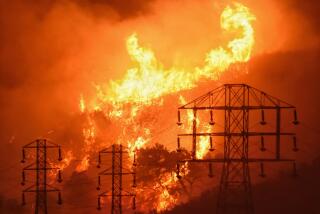Monster storm brings new fears of brutal SoCal gas heating bills as temperatures plunge
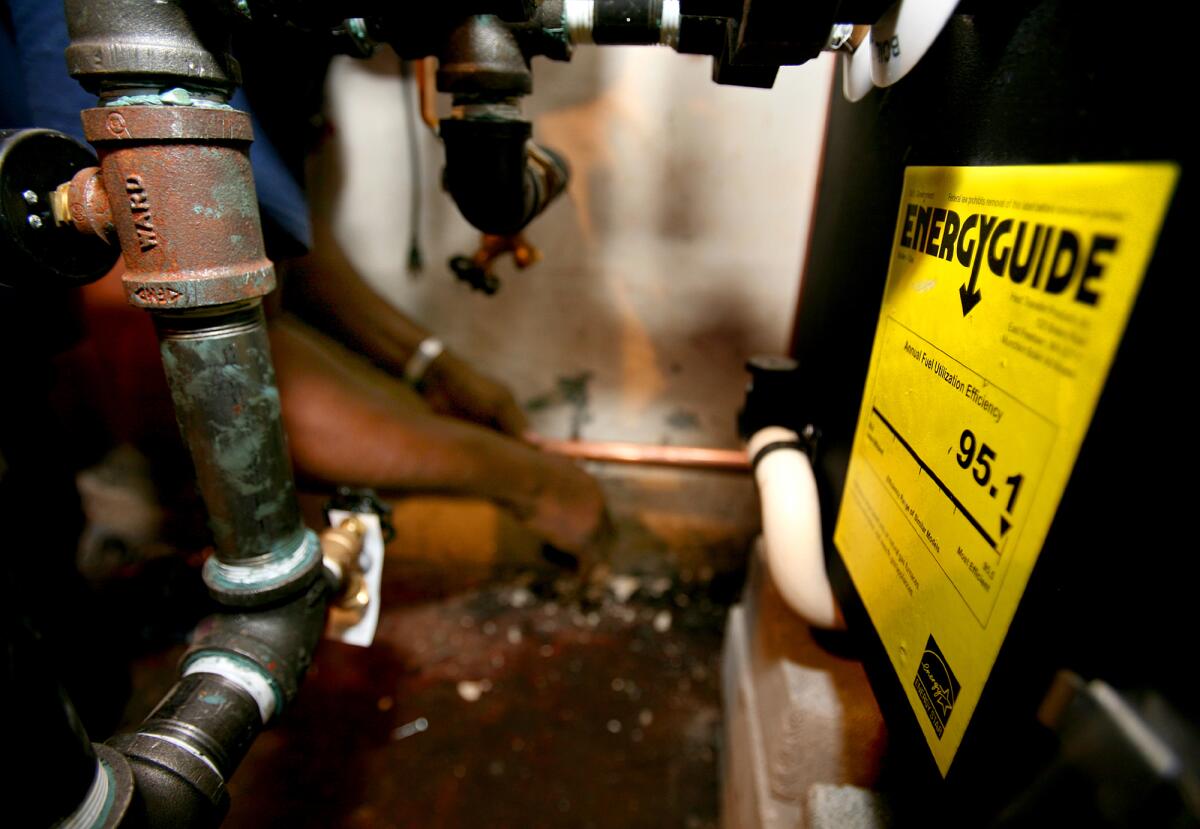
Richard Keating, 78, was the architect who designed the iconic Gas Co. Tower in downtown Los Angeles. He’s now wishing he had fewer natural gas appliances in his San Marino home as he faces a third straight month of four-digit gas bills.
The tower, completed in 1991, features a tapered crown of blue glass that is meant to look like a gas flame. Southern California Gas Co. maintains office space there.
Like people all over the state, Keating is confronting an extended cold spell and wondering how he can keep heating costs down amid high prices. Although, unlike many, he is attempting to heat a multimillion-dollar home, the supersized bills take a bite out of the budget.
“I can’t freeze to death in the house, so the heaters are going to run,” he said. “Even if I’m aggressive about it, there’s not a lot I can do” to bring down natural gas usage. Keating said he had stopped heating his pool after the “very big spike” in January left him with a bill of $1,327.02.
In February, his bill rose to $1,534.93, several times higher than what he had paid the previous year. His next bill was projected to be $921.70 — but that projection came before the storm, which threatens to bring cold temperatures to much of Southern California this week.
Scenes from across Southern California, where a powerful winter storm dumped heaps of snow and record-setting rain.
Keating designed and built his home around 15 years ago. He now wishes he had installed solar panels and lessened his reliance on gas. “Here’s a guy that should’ve known better and didn’t,” he said. If he could go back in time and redesign his home to avoid the fuel whose namesake tower he designed, he “sure as heck would.”
SoCalGas prices dropped by more than two-thirds in February after sky-high prices in January but “remain higher than usual for this time of year,” Gillian Wright, a SoCalGas executive, said in a statement.
The relationship between demand and price takes time to appear, said Chris Higginbotham, a spokesman for the U.S. Energy Information Administration. “If a given storm comes and drives up the price of natural gas,” he said, “it typically takes time for that effect to show up at a retail level.”
Demand, however, is “one of the primary drivers of natural gas wholesale prices,” Higginbotham said, and if a storm like the current one were to increase demand, it “could affect the price utilities are paying.” Those costs would ultimately be passed on to consumers.
Data from the USEIA show that stored gas in the Pacific region is well below five-year average levels, whereas all other regions in the country are close to or above average. This potential supply shortage could further raise prices, Higginbotham said.
Customers, some seeking ways to save and others expressing frustration on social media, “are telling us that they are doing what they can to conserve, including turning their heat down,” said Brian Haas, a spokesman for SoCalGas.
Donna Biroczky, a social media marketer, has struggled to keep her Fontana home warm. “Our bill was probably triple this year from last January,” she said.
She has shut off her gas fireplaces and opted for electric heaters, stocking her house with “more blankets for people to use.” Biroczky, 57, has rheumatoid arthritis, which becomes worse when temperatures drop. “Cold is my enemy,” she said.
She said skyrocketing prices for things that once felt affordable were forcing people to make trade-offs. “People are having to choose — can I afford expensive eggs, or can I afford to stay warm?”
Haas said that, alongside “some decreases in residential customer usage,” SoCalGas had seen an uptick in use of assistance programs for low-income residents.
For those who cannot afford the higher cost of staying warm in the storm, there are several such relief programs available.
Instead of turning on your heater, and paying a higher gas bill, consider layering up or sealing the gaps in your door that are letting heat escape.
The Gas Assistance Fund, funded by donations and administered by the United Way of Greater Los Angeles, can provide a one-time grant of up to $100 to help customers in need cover their bills.
California Alternative Rates for Energy, an assistance program for low-income residents, can provide a 20% discount on natural gas payments.
SoCalGas also offers a forgiveness plan for past-due bills totaling up to $8,000 if customers enroll and then pay their bills on time. With each full, on-time payment, the company forgives one-twelfth of eligible debt, allowing customers to pay off debt in full after a year.
More to Read
Sign up for Essential California
The most important California stories and recommendations in your inbox every morning.
You may occasionally receive promotional content from the Los Angeles Times.

